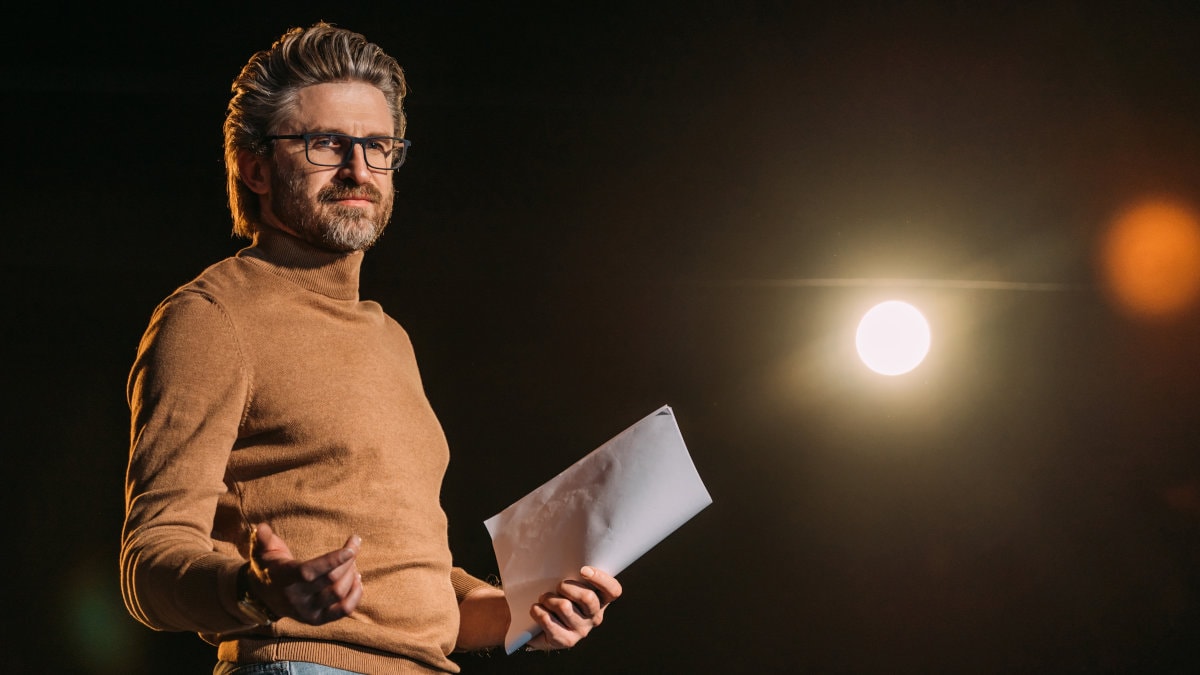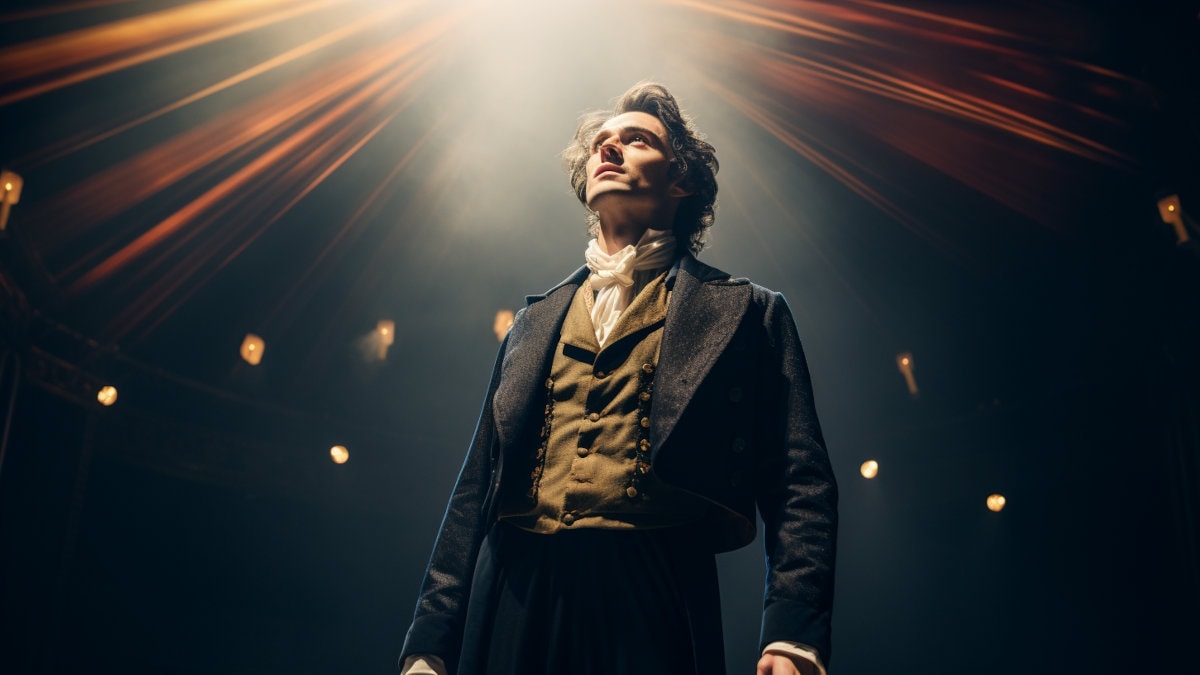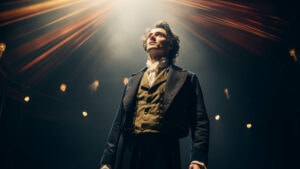Acting is one of the oldest and most rewarding professions of all time. And whilst it’s pretty easy to get started, I suspect you don’t just want to be good, you want to be great. The good news is that every actor, no matter how skilled or talented they may seem, started in the same place as everyone else, ground zero.
So whether you’re still in school dreaming of a career in film, a retiree looking to pursue a childhood dream of becoming an actor, or you’re simply unable to shell out thousands to go to a top drama school; the 9 steps that I lay out in this blog post will help you learn to act.
But before we get started, I want to note that whilst you can learn to act from home, I do believe that actors that are serious about their careers should eventually start taking classes or coaching. The benefits of a good acting teacher cannot be overstated. But since you’re just starting out, there’s a lot you can learn from the comfort of your own home, so let’s get started.
Table of Contents
Train Your Voice
The voice is one of the most important instruments in an actors toolbox, and it’s something that so many actors overlook. Whether you’re performing on the stage or the big screen; the timbre, texture and dynamics of the voice are able to make or break a performance.
Actors must make vocal excercises a part of their daily practice and their pre-performance warmup. These excercises should focus on five main things; articulation/diction, resonance, breath support, vocal range, and dynamics. Some of the best vocal excercises for actors include:
- Yawns
- Lip and tongue trills
- Tongue twisters
- Vowel and consonant excercises
- Dynamic phrase repitition
- Vocal sirens
- Physical relaxation excercises
The main goal of daily vocal training isn’t instant success, it’s slow and gradual progression through consistent practice that ultimately leads to a vast improvement from your baseline. Every week, slowly increase the intensity of each excercise and over time you’ll have a voice strong enough for anything that’s thrown at you.
For example, you may not be able to do lip trills for very long, if at all. But through consistent practice, you’ll eventually be able to do them for 2 seconds. Then, after you’re able to do that, try to reach 5 seconds. Do that for a few days, then 10 seconds, then 15, then 30. Eventually you’ll be able to trill till the sun goes down.
Take Control of Your Acting Career
Learn to build a consistent and sustainable career in the entertainment industry!
It can sometimes be hard to see progress when it comes at a slow pace, which then leads to you giving up. But by keeping track through these objective measurements, you’re able to see your growth overtime. Slow progression leads to maximum results.
Practice Movement

A writers abilty is displayed through their writing. A chefs ability is displayed through their food. But an actor stands on stage or on set completely open to scrutiny. You can’t hide behind your own body. You are the instrument. You are the pen. You are the performance.
Therefore physicality is extremely important to performance. Acting isn’t just about learning the lines and saying them in a different accent. You must walk as the character walks. You must hold your weight as the character holds their weight. Does a working class man walk differently to the prince that’s next in line to the throne? Maybe.
Whilst in my first year of drama school my acting teacher sent us out to town to people watch. After paying attention to the way people moved, gesticulated, and acted when they weren’t aware they were being watched, we were able to create personalities and lives around them through their physicality alone. We would then report on what we found.
I know that people watching sounds weird, but I promise you, it’s extremely helpful. It gives you ideas that you never would have thought of, it inspires creativity in physicality, and it allows you to base the physicality of your performance not just on the imagination, but from truth. Aslong as you’re not weird about it, it’s absolutely fine.
The Alexander Technique is also extremely helpful in allowing in neutralising issues and reducing wear and tear on the body that’s caused by the weight of everyday life. A great actor is a pliable one, and the Alexander Technique gives you a great canvas to work off of when creating a character.
Be Physically Prepared
Stella Adler, a highly respected acting practitioner once said, “You must have 100 percent health. Actors don’t sneeze on the stage.” And whilst this may seem a bit unrealistic, the point she’s making is a sound one. Of course we can’t control every aspect of our health, but we must control what we can. You only have one body, one brain. If you’re trapped within the confines of an unhealthy, weak and rigid body, your acting will be nothing but weak and rigid.
As an actor, you must be physically prepared for every role that comes your way and you must therefore take your health and wellness seriously, both physically and mentally. When it comes to excercise, find something you enjoy. That may just be weightlifting or swimming, but many actors also swear by yoga and many other types of excercise. Find what’s fun for you.
You can’t act with a cloudy mind. By being healthy, excercising, eating and most importantly sleeping well, you’ll find that your mind becomes clear, you’ll no longer experience brainfog and finally you’ll be prepared to act.
Train The Imagination
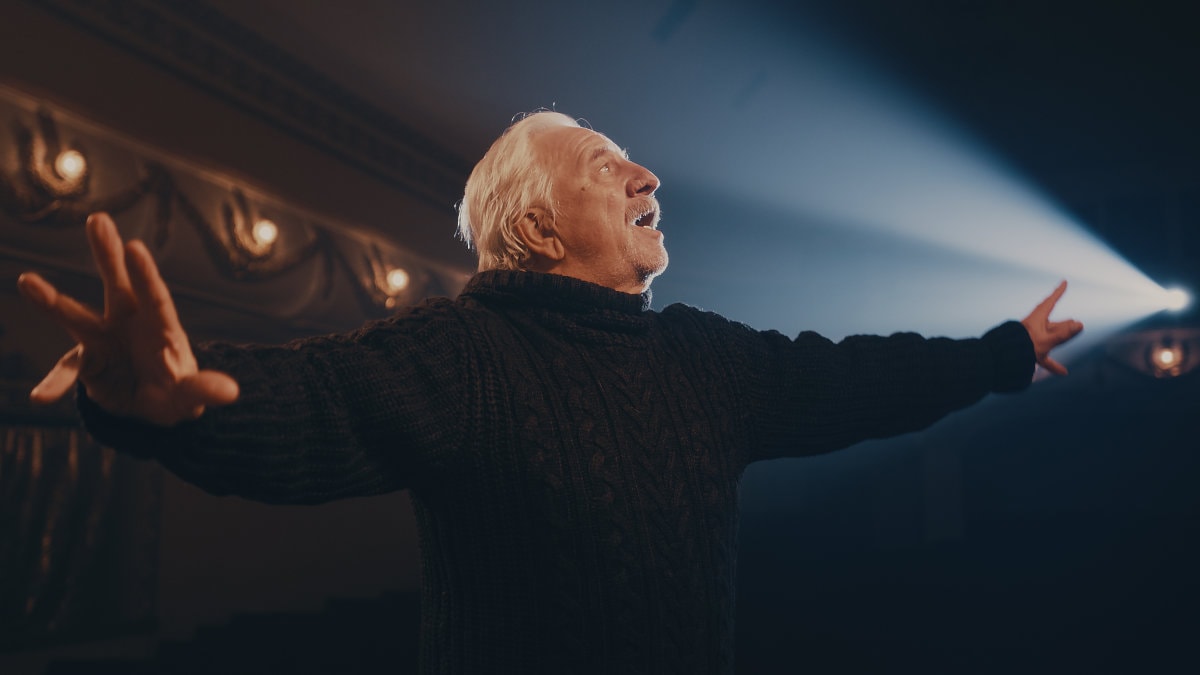
To some extent, it could be considered easy to act on a hyper-realistic set with practical effects, surrounded by talented actors dressed in period costume. But have you ever thought about what it would be like to act without any set at all? Many of the biggest budget movies of today are partly filmed, or in some cases almost entirely filmed in studios with massive green screens.
Do you have the ability to effectively use your imagination to be able to truly see the world around you? We all have the potential for this ability, it just needs to be trained. And this isn’t an ability that’s only useful on a set with green screens, your imagination plays a large role in all acting.
It’s not good enough for an actor to imagine a vague image or outline of something. You need to be able to see the creases on the sofa, the ripped cross stitch on the pillows from where you’d pick at them as a child, the faint haze from the blazing fireplace surrounded by a wooden arch that your father painted himself. You need to see everything.
This training starts with perception. So many of us live in our heads or in our phones, thinking of past, future or fantasy. Instead, we must be present. This is a practice you must follow every day. When you’re in your garden, walking down the street or out shopping. Look at the signs, look at the trees, notice the colours, notice the texture, the look and feel of everything around you. When you drink a hot coffee, feel the warmth on your hand and how it radiates into your palms.
The more you perceive, the more you notice, and the finer detail you go into, the stronger your imagination will become and therefore the better your acting will become.
Learn Monologues & Scenes
If you want to learn how to act, the best advice you can follow is to actually act. Actors learn to act by doing. Of course, reading books, training and studying the craft will drastically improve your practice, but you can only implement the things you learn by actually acting. You can read all the books you like, but unless you put those teachings into practice you’ll never get better.
If you have a scene partner, the best way to do this is by doing scenes. Do some scene study together, and get up on your feet and rehearse, have fun with it! But if you’re looking to practice at home or you don’t have access to a scene partner, learning monologues is a great alternative.
Remember that a monologue isn’t just about learning and resiting the lines. Develop a character based on the information in the script and build on that with your own opinions of the character. Then you can start to work on the scene. Here are a few things to keep in mind when preparing a monologue:
- Always read the entire script for context.
- Where/when is the character in the monologue?
- Where was the character before this moment?
- Who is the character talking to?
- What is the characters motivation/goal?
- What is stopping you from achieving that goal?
Celebrity acting coach Larry Moss recommends actors have 4 monologues prepared at any given time, and to learn 4 new ones every 3 months. This is a great recommendation, as it allows you to learn a new monologue ever few weeks, keeping you in practice and keeping your work fresh.
Read Plays & Screenplays
Once an actor starts working, they’ll be reading scripts all the time. But until then, it’s important that you expand your knowledge of writing and writers. Read plays and screenplays, old writing and new writing, great writers and writers you’ve never heard of. From Shakespeare, to Arthur Miller, to Simon Stephens.
The more you read, the more you’ll get to know what you like and what you don’t like. You’ll get more comfortable working with a script. You’ll have a library of characters you’d like to play, monologues you’d like to perform and writers you’d like to work with.
You can then practice developing characters, just for fun, you can practice learning the lines and doing script analysis, and so much more. Whilst you’re not being paid to be in a show just yet, the work you do now will prep you for when you are.
Read Acting Books

There are so many amazing books that actors can benefit from reading. From books on acting technique, motivation, audition prep and the business. Whilst you can’t learn how to act from books alone, they can still provide great value.
I suggest you start by reading books on technique. Starting with Stanislavski, and then if you’d like to expand from there you can always branch out to some other acting techniques. I recommend reading my blog post on the best acting techniques as I go into on some of the most famous techniques that are used by actors throughout the industry.
Learn from them, take what’s useful. If something doesn’t seem useful, just keep a note of it. I remember learning certain techniques and excercises thinking, “what’s the point of this.” Only to realise 5 years later that I now have the perfect usecase for it. Your acting technique will change and develop with each role you take, and each year you practice.
Watch Films & Plays
Great writers study great writing, great musicians study great music and great actors should study great acting. Yes, I’m giving you permission to watch Netflix! Watch plays, watch films, but don’t be passive about it. Notice what works, and what doesn’t work.
I personaly find that, as someone that’s trained in acting, the best films and plays are the ones where I lose myself and forget I’m watching a story. When I’m able to see the acting, and see what’s going on behind the scenes, I don’t like it. Great acting can submerse even the greatest actors among the audience.
You can even watch online content such as interviews and discussions with actors where they’re talking about their techniques and experiences. I find these extremely fascinating, inspiring and very helpful in my own life. There are some great interviews on Youtube such as, Actors Roundtable by The Hollywood Reporter and Actors on Actors by Variety. These interviews often go deep into the industry, technique and life in general, I’d highly suggest checking them out.
Find Confidence
Confidence is very important in an actor. If you walk into an audition or rehearsal looking visibly nervous or like you shouldn’t be there, the people around you will be able to tell and you’ll feel it within your performance. You must be relaxed, and that can only come from confidence in yourself, and your ability. If you’re confident in yourself, they’ll be confident in you.
This comes from the things you do every day. Go to the gym, sleep well, practice your monologues, train your voice, work on your audition, work on yourself. You’ll always have a degree of nervousness before a show or audition. But you can still be confident in your ability and be confident that you’ve put the work in.
But remember, be confident not arrogant. If you walk into the audition room acting like they owe you the job, or that they’re lucky to have you there, they’ll never invite you back. Be confident in your ability, but honoured by all opportunity and as the great Andy Nyman said in his book The Golden Rules of Acting, “Be happy, you’ll work more.”
Ask Questions
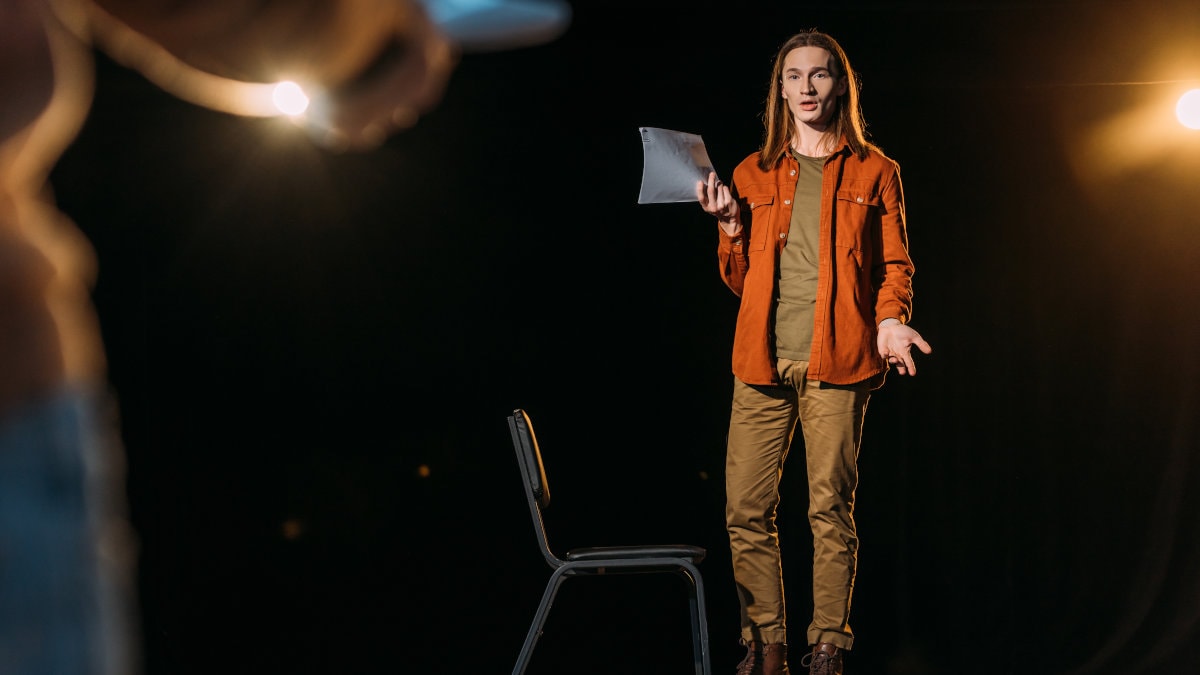
An actor is a researcher. They must analyse life, the world, relationships, psychology and emotions and how they feel. They must look into the smallest details of the smallest things and the smallest details of the biggest concepts.
Ask questions about life. Ask questions about science, space, psychology. Ask questions about writing and storytelling. Ask questions about why you walk, sit and move the way you do. Ask questions about why the writer made a certain decision or why a character reacts a certain way. Ask questions about anything and everything, not just in relation to acting, but in relation to life, death and everything in between.
Make acting a priority
Most people have thought about becoming an actor. Millions look into it, and thousands go to drama school each year. But there’s only two things that seperate those that are successful and those that aren’t. Luck and work ethic. Whilst we all know that luck has its place, we can’t control it, so there’s no point thinking about it. But what you can control is your work ethic. By making acting a priority, you’re not just telling yourself that this is what you want to do, you’re proving it.
The truth is, you can’t become a great actor overnight. Maybe you have natural talent, maybe you don’t, that doesn’t matter. Your baseline is just that, a baseline. If you want to be a truly great actor, no matter how good you are now, you must rise from your baseline one step and one day at a time. And the only way of doing that is by putting in the work. You don’t have to miss your wedding day or childs birth, that’s crazy talk, but you do have to be consistent and keep yourself accountable.
The greatest actors of all time, despite money, fame & success still consider themselves students to the craft and students of life. And whilst there’s no guarentee that work ethic will bring you fame or fortune, I can guarentee that the lack of it will lead to failure. And to go back to luck, by working hard and making acting a priority, by putting yourself out there, improving, practicing, failing and practicing more, you’re giving yourself more opportunities to be lucky.

